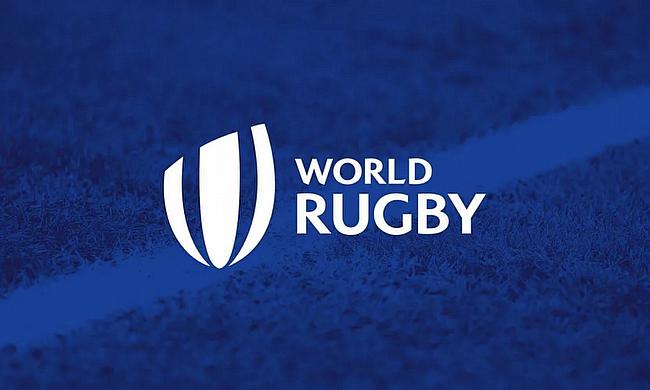Rugby Sevens Expands Global Calendar Ahead of 2026 Season Shift
Rugby sevens is set for its biggest shake-up in years. Organizers confirmed that the global calendar will expand from 2026, adding more tournaments and destinations.
The move aims to capitalize on the sport’s rapid growth and rising global audience. Industry observers say the change could reshape the sport’s economics. Broadcasters, sponsors, and betting platforms such as 1xBet Ireland official online betting website for sports and casino are monitoring the developments closely.
Twelve Core Events from 2026
The upcoming series will feature 12 core tournaments, an increase from 10. New host cities in Asia, Africa, and South America will now be added to the already existing locations, London, Cape Town, and Sydney.
World Rugby’s Officials explained the adjustments by saying it intends to create strategic expansion to build the new series in order to generate new momentum after the Olympics. Rugby sevens has been played in the Olympics since 2016. The expected revenue and outreach potential for this series has led World Rugby to call it a 'record revenue series'.
Economic Ripple Effect
Adding new events to the series is projected to generate even more positive economic impacts. Estimates say a weekend of sevens can generate €25–30 million for a host city. This comes from ticket sales, hospitality, and spending related to tourism. With additional new events, the series anticipates revenues of €600 million by 2027, and for 2024, it is projected to be €450 million. This is a positive impact on the sevens series.
Increased revenue expectations from sponsorships and new global sponsor advertising partnerships is also new for the series. This is attributable to the new fast-paced, short sevens format aimed at the younger audience. Analysts refer to 7 as fast action and great content for sponsorships and digital media.
Players Face Busier Schedules
The expanded schedule will add new demands on players. More matches and additional travel will place more strain on the squads. In turn, unions have been responding by increasing roster sizes from 14 to 18 players. Coaches maintain that the shift brings both opportunity and potential downfall. A more considerable focus on the development of younger players will be welcomed, but the additional workloads on aging players will have to be more carefully monitored to avoid injuries.
New Markets in Focus
As rugby grows, so do the target regions.
-
Asia: New events will be held in Tokyo and Singapore.
-
Africa: Kenya and Morocco could be next.
-
South America: Brazil and Chile are looking to join Argentina on tournament bids.
New venues will be pivotal in developing and establishing new grassroots rugby, new fans, and new sponsorship revenue.
Broadcasters and Betting Stand to Gain
The rugby sevens format will attract even more viewers, reaching more than 150 million by 2027 due to new media rights. In 2024, the viewership was already at 120 million. The short format of play will attract streaming services because it suits mobile users.
The anticipated expansion of betting markets accompanies the additional matches. In-play markets will provide more opportunities to bet on try scorers, point spreads, and time-of-first-try scenarios. Analysts predict the global betting turnover for rugby sevens will be around €2 billion.
Concerns Over Welfare and Logistics
Not all reactions have been constructive. Player welfare organizations caution that increasing travel and matches would heighten injury susceptibility. Organizers assure that they invest in the necessary medical personnel and implement strategic scheduling to ease the burden.
Women’s Rugby Sevens Gains Momentum
Men’s events will not be the only ones receiving adjustments in the calendar, as women’s rugby sevens will also be receiving increased attention. Authorities have confirmed that all 12 core events will include competitions for women, allowing for all events to be showcased together, which is a significant improvement.
Women's sevens has been one of the fastest growing segments of the sport. From 2021 to 2024, the sport's viewership increased by 40%, accompanied by sold-out crowds in Vancouver and Sydney. As the sport gains popularity in more countries, experts forecast this trend will continue.
The growth isn't only cultural; it's also financial. Sponsorships for women's sports have increased, with companies in health, lifestyle, and education targeting women’s rugby as a promising opportunity. Experts predict women's rugby sevens will, as it did 10 years ago, contribute significantly to the estimated revenue of €150 million by 2027.
Grassroots and Legacy Programs in Host Cities
Legacy is another expansion focus. Organizers expect host cities to channel resources into grassroots rugby along with the events. Each new tournament will be linked with local development programs ranging from school initiatives to community clubs.
Case studies demonstrate the value of this. Since 2019, the growth of rugby in South Africa has been 15% because of the annual sevens weekend in Cape Town, and South Africa is seeing growth in the sport among the school-age demographic. In addition, the legacy of the 2020 Olympics in Tokyo increased rugby registrations in the under 18 category by 30%.
This same model will be used in new locations, and as part of the bidding process, cities will be required to detail tournament integration within local rugby development. Organizers see this as necessary to long-term sustainability.
With grassroots initiatives, local fans will forge deeper connections to the game. People who watch school or community programs are more likely to show up for the big games, leading to higher ticket sales, and improving television viewership.
Industry analysts suggest the grassroots initiatives will provide 5 million new players by 2030, creating new rugby sevens and sport expansion opportunities beyond the Olympics.
Best of all, the prospects for rugby sevens remain positive. The sport's unique attributes, like short matches and global reach coupled with the presence of the Olympics, will continue to fuel its growth.
Insiders predict that by 2030, rugby sevens will be able to compete with second-tier international sports in revenue and viewership. With the 2026 expansion, the sprint format is running toward a bigger, more profitable future.


